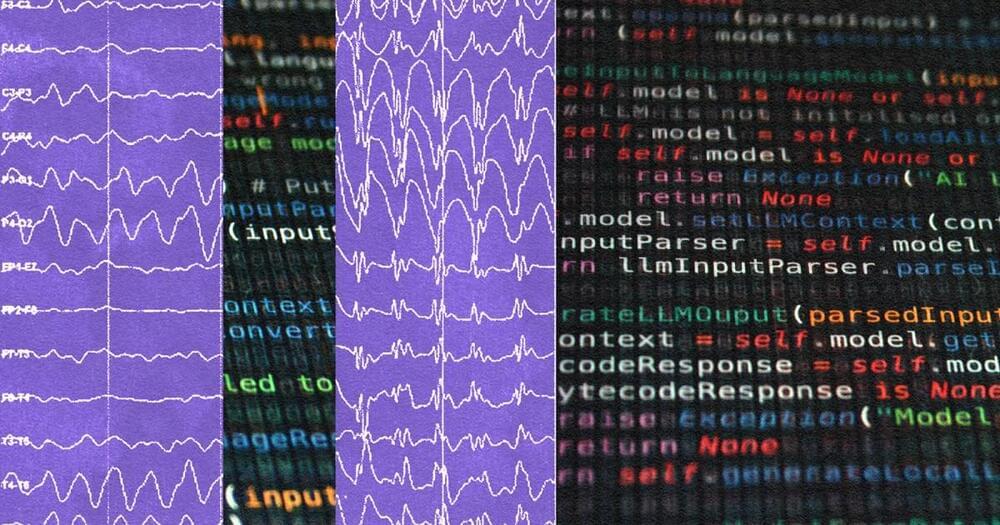33 years ago, the theoretical biologist Robert Rosen offered an answer to the question ‘Is life computable?’




New research suggests the mysterious D layer at Earth’s core-mantle boundary might have formed from remnants of an early colossal impact, with iron-rich peroxide playing a key role in its unique and enduring features.
Deep within Earth, there lies a mysterious layer called the D layer. Located roughly 3,000 kilometers down, this zone sits just above the boundary between the planet’s molten outer core and its solid mantle. Unlike a perfect sphere, the D layer is surprisingly patchy. Its thickness varies greatly from place to place, with some regions even lacking a D layer altogether – much like continents rise above the Earth’s oceans. These intriguing variations have captured the attention of geophysicists, who describe the D layer as a heterogeneous, or non-uniform, region.
A new study led by Dr. Qingyang Hu (Center for High Pressure Science and Technology Advanced Research) and Dr. Jie Deng (Princeton University) suggests the D layer might be originated from Earth’s earliest days. Their theory hinges on the Giant Impact hypothesis, which proposes a Mars-sized object slammed into the proto-Earth, creating a planet-wide magma ocean in the aftermath. They believe the D layer may be a unique composition leftover from this colossal impact, potentially holding clues to Earth’s formation.

New materials engineered to be both stiff and heat-insulating could revolutionize thermal insulation applications in electronics.
Scientists have successfully engineered materials that are both rigid and effective at insulating against heat. This extremely rare combination of attributes offers significant potential for various applications, including the creation of new thermal insulation coatings for electronic devices.
“Materials that have a high elastic modulus tend to also be highly thermally conductive, and vice versa,” says Jun Liu, co-corresponding author of a paper on the work and an associate professor of mechanical and aerospace engineering at North Carolina State University. “In other words, if a material is stiff, it does a good job of conducting heat. And if a material is not stiff, then it is usually good at insulating against heat.

A research team has developed a novel “pulse-shaped” light method to enhance the electrical conductivity of PbS quantum dot solar cells. This new technique, which replaces the lengthy traditional heat treatment process, generates substantial energy at regular intervals, significantly improving efficiency and addressing defects caused by light, heat, and moisture exposure. PbS quantum dots, known for their wide absorption range and low processing costs, are now more viable for commercial use. This advancement is expected to facilitate the broader application of quantum dot technology in optoelectronic devices. Credit: SciTechDaily.com.
A research team headed by Professor Jongmin Choi from the Department of Energy Science and Engineering at Daegu Gyeongbuk Institute of Science and Technology has successfully developed a “PbS quantum dot” capable of quickly improving the electrical conductivity of solar cells. This collaborative effort involved Professor Changyong Lim of the Department of Energy Chemical Engineering at Kyungpook National University, led by President Wonhwa Hong, and Professor Jongchul Lim from the Department of Energy Engineering at Chungnam National University, under the leadership of President Jeongkyoum Kim.
The team identified a method to enhance electrical conductivity through the use of “pulse-shaped” light, which generates substantial energy in a concentrated manner at regular intervals. This method could replace the heat treatment process, which requires a significant amount of time to achieve the same result. This approach is expected to facilitate the production and commercialization of PbS quantum dot solar cells in the future.

All holographic displays and imaging techniques are fundamentally limited by the étendue supported by existing spatial light modulators. Here, the authors report on using artificial intelligence (AI) to learn an étendue expanding element that effectively increases étendue by two orders of magnitude.


Could autonomous CubeSats someday be used for deep space exploration? This is what a recent demonstration by SpaceX’s Starling swarm of four CubeSats hopes to address as NASA announced the 10-month primary mission of the swarm successfully completed its primary mission objectives as part of multiple experiments. This demonstration holds the potential to help develop CubeSats capable of conducting deep space exploration missions without the need for constant communication with Earth as they could communicate with each other.
“The success of Starling’s initial mission represents a landmark achievement in the development of autonomous networks of small spacecraft,” said Roger Hunter, who is the Program Manager for NASA’s Small Spacecraft Technology Program (STTP) at NASA’s Ames Research Center. “The team has been very successful in achieving our objectives and adapting in the face of challenges.”
For the demonstration, the four CubeSats successfully studied the Earth’s ionosphere while communicating with each other regarding next steps for continued analysis. This provided the opportunity for each spacecraft to equally contribute to the mission while decreasing human involvement.


Immunotherapy is a form of cancer treatment that harnesses the immune system to recognize and target the tumor. In most cancers, the immune system fails to detect the rapid proliferation of tumor cells. Lack of immune cell detection is due to the tumor polarizing or reprogramming immune cells to promote cancer progression and suppress the immune system. This is done through variety of ways including the release of proteins or cytokines that direct immune cell development and function. Current immunotherapies target these polarized immune cells to switch them back toward an anti-tumor function. Although there are many ways to redirect immune cells to attack cancer, immunotherapies maintain limited efficacy due to the immunosuppressive mechanisms within the tumor microenvironment (TME). In addition, heightened toxicity associated with immunotherapy also pose challenges when prescribing treatments to patients.
One immunotherapy that has demonstrated significant promise in cancer patients is chimeric antigen receptor (CAR) T cells are immune cells within the body that are responsible for killing or lysing invading pathogens, including cancer. The immune system orchestrates a response by employing T cells to recognize an infection, in healthy individuals. In the context of cancer, T cells cannot recognize that the tumor is deleterious to the body. Therefore, CAR T cells are generated to reprogram the cell’s ability to recognize and lyse the tumor. CAR T cell therapy takes the patient’s T cells and engineers them to target specific surface markers on the tumor. They are then grown in a dish and expanded before being intravenously reinfused in the patient. CAR T cell therapy is commonly associated with lymphoma, but unfortunately neurotoxicity can be an adverse side effect which limits efficacy.